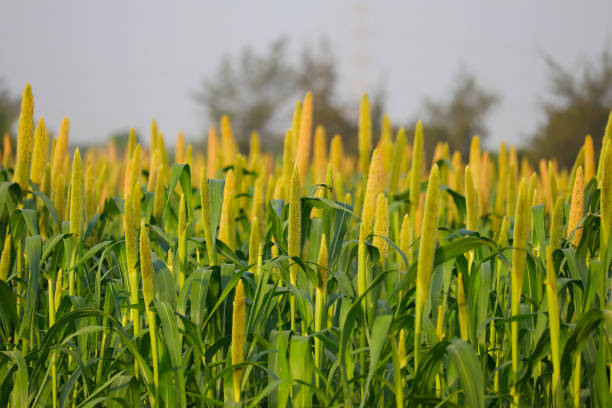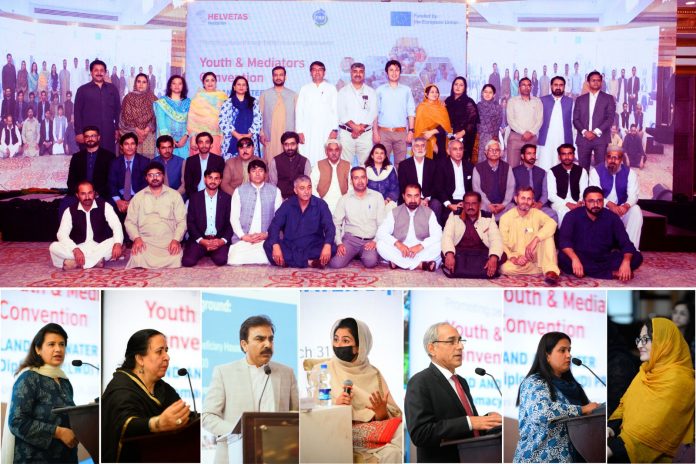NEWS DESK
Millets are a group of small-seeded grasses that have been cultivated for thousands of years around the world. In Pakistan, millets have not been as widely adopted as a food crop for human consumption compared to wheat and rice. However, in recent years, there has been an increasing awareness of the nutritional benefits of millets, and efforts are being made to promote their cultivation and consumption for human consumption as well. In this article, we will explore the benefits of millets from a Pakistani perspective.
Health Benefits of Millets:
Millets are a rich source of essential nutrients, including vitamins, minerals, and antioxidants. They are also high in fiber and protein, making them an excellent food choice for vegetarians and vegans. The following are some of the health benefits of millets:
Good for Heart Health: Millets are rich in fiber, which helps lower cholesterol levels and reduce the risk of heart disease. This is particularly important in Pakistan, where heart disease is a significant health issue.
Lowers Blood Sugar Levels: Millets have a low glycemic index, which means they do not cause a rapid spike in blood sugar levels. They are an ideal food choice for people with diabetes, which is a growing health concern in Pakistan.
Helps with Weight Management: Millets are low in calories and high in fiber, which makes them an excellent food choice for people looking to lose weight. This is particularly important in a country like Pakistan, where obesity is becoming an increasingly common problem.
Gluten-Free: Millets are naturally gluten-free, making them an ideal food choice for people with celiac disease or gluten intolerance, which is an issue in Pakistan.
Environmental Benefits of Millets:
Millets are a sustainable crop that requires less water and fertilizer than wheat and rice. They are also more resistant to pests and diseases, reducing the need for pesticides. The following are some of the environmental benefits of millets:
Water Efficiency: Millets require less water than wheat and rice, making them an ideal crop for areas with water scarcity. In a country like Pakistan, where water scarcity is a growing concern, this is particularly important.
Soil Conservation: Millets are a drought-resistant crop that can grow in poor soils, helping to conserve soil fertility and prevent erosion. This is particularly important in areas where soil degradation is a problem.
Biodiversity: Millets are a diverse group of crops that can grow in a wide range of environments, promoting biodiversity in agriculture. This is particularly important in Pakistan, where the loss of biodiversity is a growing concern.
Climate Resilience: Millets are adapted to harsh growing conditions, making them more resilient to climate change than other crops. In a country like Pakistan, where climate change is a significant concern, this is particularly important.
Benefits for Farmers:
Millets can be a profitable crop for farmers, particularly small-scale farmers who have limited resources. Millets require less water and fertilizer than wheat and rice, reducing input costs. They are also more resistant to pests and diseases, reducing the need for pesticides. Furthermore, millets are an ideal crop for crop rotation, helping to prevent soil degradation and improve soil fertility. In addition, millets have a long shelf life and can be stored for several months, providing farmers with a steady source of income throughout the year.
Government Support and Export Potential:
To promote the cultivation and consumption of millets in Pakistan, the government should provide financial incentives such as subsidies to farmers who want to switch to millet cultivation. The government should also invest in training programs for farmers to help them learn about millet cultivation, which would improve the yield and quality of millets grown in the country. By increasing millet cultivation, Pakistan can potentially become a major exporter of millets, providing a boost to the economy. The government should work with millet farmers and exporters to help them access international markets and build relationships with potential buyers. Additionally, by raising awareness among consumers about the benefits of consuming millets, the government can create a sustainable market for millets in Pakistan and improve the health of its citizens


